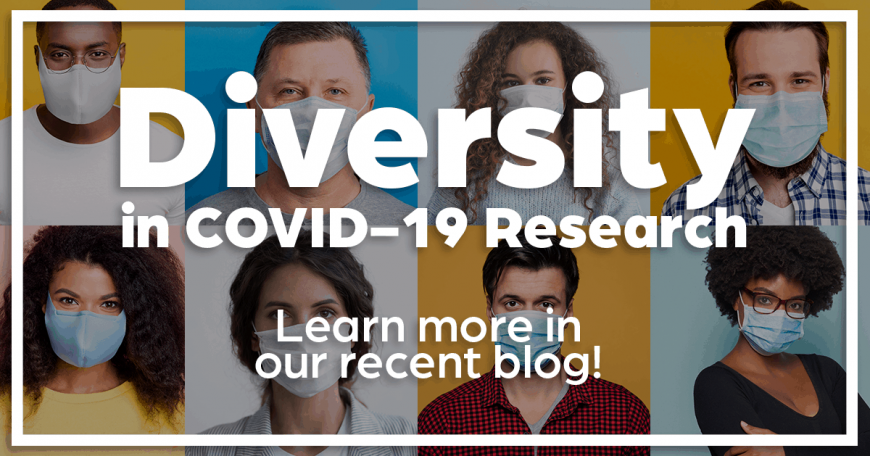
As we pass the first anniversary of the first reported case of COVID-19 in the U.S., a lot of uncertainty remains despite the tremendous progress. Diversity has been a challenge long before the coronavirus, and it’s vital to end the disproportionate impact in communities of color. As clinical research efforts continue to deliver new ways to detect, prevent, and treat COVID-19, study participants’ diversity will be more critical than ever.

Importance of Diversity in Research
Genetics and biological makeup differ for every person. For vaccines, this means how antibodies are produced in one ethnic group can vary from others. Since the pandemic began, data gathered shows much higher rates of infection, hospitalization, and death in people of color.
Diversity also covers various age groups, gender, and backgrounds. Older individuals and those with underlying health conditions are more likely to suffer severe symptoms, hospitalizations, and death as well. The populations with the most significant risk stand to benefit the most from the new possibilities being developed for COVID-19. At the same time, they need to be tested in these groups to ensure they are safe and effective for everyone.
Disparity Causes
Historical mistreatment of minority populations in research studies fuels mistrust and prevents some from participating. Though safeguards, ethical laws, and oversight by the FDA have made research studies much safer, the past is still fresh in minds. Others feel they lack the tools to make it to appointments due to lack of transportation, inability to leave work early, childcare needs, and so on. The reality is that many studies offer options to help with those challenges, such as reimbursement for time and travel, transportation help, and extended hours.
By talking with the study office, you can learn more about the study, potential risks, and possible benefits. The commitment for each study varies. A vaccine study may last two years, while an antibody study may be one visit for example. While there are criteria for each that must be met, flexibility of choice is always a bonus. Volunteering in clinical research studies is 100% voluntary throughout the entire process. You can end your commitment at any time in the event you cannot continue.

ActivMed Practices & Research is proud to be a part of history in the fight to end COVID-19. Our site participated in the large AstraZeneca vaccine study, as well as other antibody test studies. Get further details about enrolling COVID-19 studies here.
Without the selfless gift our volunteers offer, the progress made thus far wouldn’t be possible. To learn more about volunteering or view a current list of enrolling studies at each of our sites, visit our website.
References:
https://hub.jhu.edu/2020/11/30/diversity-covid-19-vaccine-trials/
https://www.henryford.com/blog/2020/11/diversity-in-vaccine-trials
